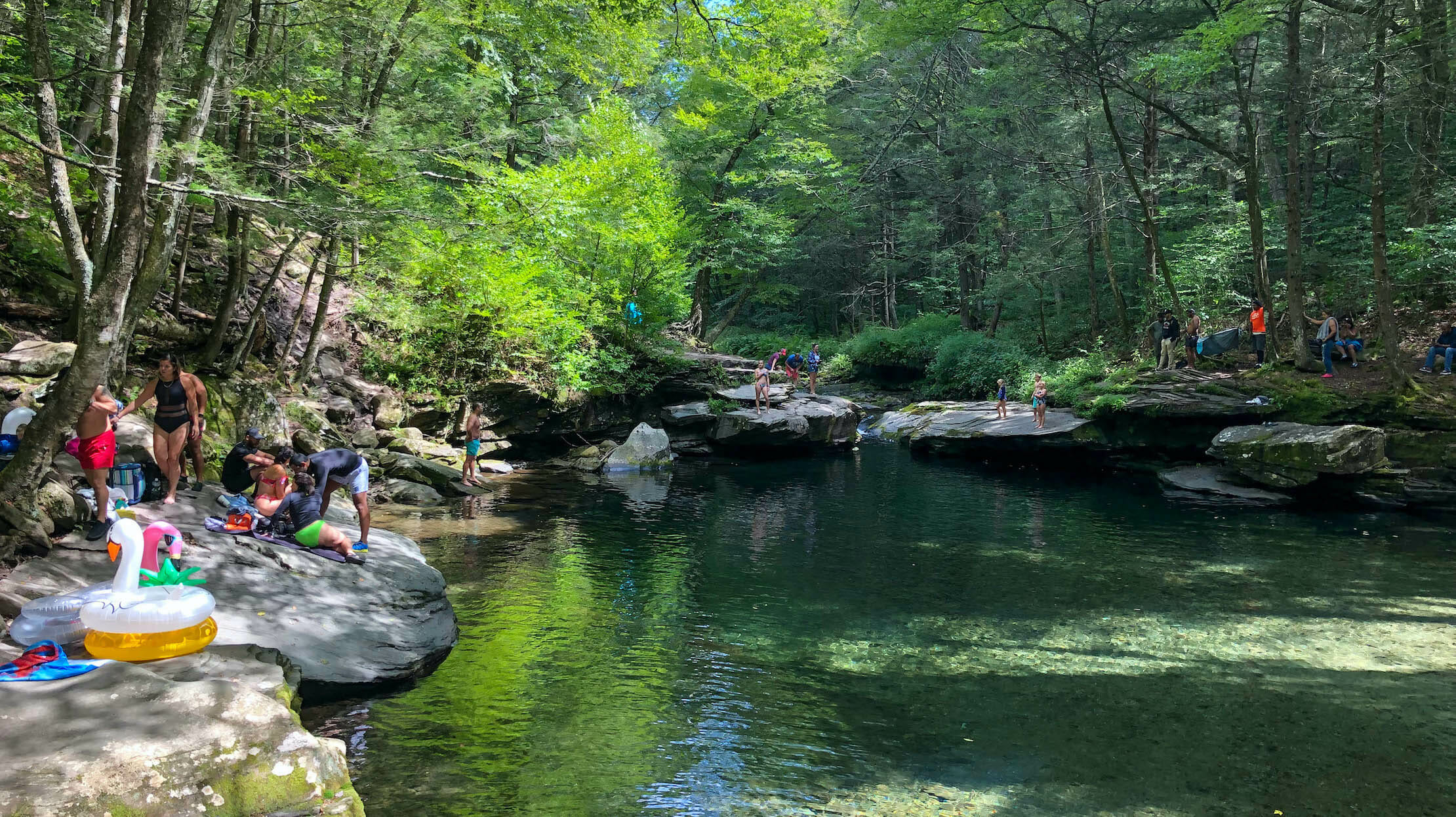Teaching Resources
Leave No Trace for Frontcountry

Outdoor Ethics for Frontcountry
Various demographic, geographic and behavioral factors have been taken into consideration during the development of the Frontcountry education program. According to the Outdoor Industry Association there are three times as many car campers and five times as many day hikers as there are backpackers in the U.S. The number of day hikers is projected to increase from 47 million people to 74 million people by 2050, and car campers are expected to increase from 42 million to 62 million by 2050. Various market trends were also considered in targeting day hikers and car campers. For example, according to a USDA Forest Service study day hiker days are projected to surpass the one billion days mark by 2020.
7 Principles for Frontcountry
KNOW BEFORE YOU GO
- Be prepared! Remember food and water, and clothes to protect you from cold, heat and rain.
- Use maps to plan where you’re going. Check them along the way so you’ll stay on course and won’t get lost.
- Remember to bring a leash for your pet and plastic bags to pick up your pet’s waste.
- Learn about the areas you plan to visit. Read books, check online and talk to people before you go. The more you know, the more fun you’ll have.
STICK TO TRAILS AND CAMP OVERNIGHT RIGHT
- Walk and ride on designated trails to protect trailside plants.
- Do not step on flowers or small trees. Once damaged, they may not grow back.
- Respect private property by staying on designated trails.
- Camp only on existing or designated campsites to avoid damaging vegetation.
- Good campsites are found, not made. Don’t dig trenches or build structures in your campsite.
TRASH YOUR TRASH AND PICK UP POOP
- Pack it in, Pack it out. Put litter–even crumbs, peels and cores–in garbage bags and carry it home.
- Use bathrooms or outhouses when available. If not available, bury human waste in a small hole 6-8 inches deep and 200 feet or 70 big steps from water.
- Use a plastic bag to pack out your pet’s poop to a garbage can.
- Keep water clean. Do not put soap, food, or human or pet waste in lakes or streams.
LEAVE IT AS YOU FIND IT
- Leave plants, rocks and historical items as you find them so others can enjoy them.
- Treat living plants with respect. Carving, hacking or peeling plants may kill them.
BE CAREFUL WITH FIRE
- Use a camp stove for cooking. Stoves are easier to cook on and create less impact than a fire.
- If you want to have a campfire, be sure it’s permitted and safe to build a fire in the area you’re visiting. Use only existing fire rings to protect the ground from heat. Keep your fire small.
- Remember, a campfire isn’t a garbage can. Pack out all trash and food.
- Firewood should be either bought from a local vendor or gathered on site if allowed. Don’t bring firewood from home – it can harbor tree killing insects and diseases. Many states regulate the movement of untreated firewood.
- Before gathering any firewood, check local regulations.
- Burn all wood to ash and be sure the fire is completely out and cold before you leave.
KEEP WILDLIFE WILD
- Observe wildlife from a distance and never approach, feed or follow them.
- Human food is unhealthy for all wildlife and feeding them starts bad habits.
- Protect wildlife and your food by securely storing your meals and trash.
SHARE OUR TRAILS AND MANAGE YOUR PET
- Be considerate when passing others on the trail.
- Keep your pet under control to protect it, other visitors and wildlife.
- Listen to nature. Avoid making loud noises or yelling. You will see more wildlife if you are quiet.
- Be sure the fun you have outdoors does not bother anyone else. Remember, other visitors are there to enjoy the outdoors too.
